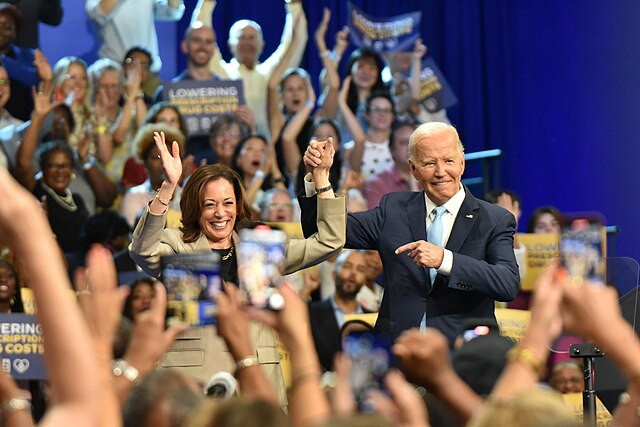In a decisive statement reflecting ongoing tensions over American manufacturing, Vice President Kamala Harris and President Joe Biden vocally opposed the proposed sale of U.S. Steel to Japan's Nippon Steel during a high-profile campaign event in Pittsburgh on Labor Day. Their stance underscores the administration's commitment to preserving American control over critical industries amid a backdrop of national security concerns and economic strategy.
Addressing a crowd of enthusiastic union members at an International Brotherhood of Electrical Workers hall, Harris articulated her support for maintaining U.S. Steel as a domestically owned entity. "U.S. Steel is a historic American company, and it is vital for our nation to maintain strong American steel companies," she declared. Her comments align with the administration's broader opposition to the $14 billion acquisition bid by Nippon Steel, Japan's largest steelmaker.
President Biden, who spoke before Harris, echoed her sentiments. Reiterating his opposition to the deal, Biden underscored his administration's stance that such a sale could undermine American steelworkers and the broader U.S. manufacturing base. "It's important that we maintain strong American steel companies powered by American steel workers," Biden stated, highlighting the administration's efforts to bolster domestic industries.
The joint appearance in Pittsburgh was notable not only for its political implications but also for its timing. This event marked Harris's second campaign stop of the day, following a Labor Day parade in the city. It was also her first joint rally with Biden since the president's endorsement of Harris as his successor, a move that has shifted the dynamics of their campaign strategy.
The controversy surrounding the U.S. Steel sale has been brewing for months, with the proposed acquisition drawing scrutiny from both sides of the political spectrum. The White House's opposition, articulated by Biden and now strongly supported by Harris, reflects concerns over national security and economic sovereignty. The administration's position has been reinforced by recent statements from Harris, emphasizing the strategic importance of keeping U.S. Steel under American control.
For the deal to proceed, it must receive approval from the Justice Department and the Committee on Foreign Investment in the United States (CFIUS). This committee, composed of senior members of Biden's cabinet, including the Secretaries of Treasury and Defense, is tasked with evaluating the deal's impact on national security. The outcome of this review remains uncertain, with Biden and Harris's vocal opposition adding political weight to the ongoing deliberations.
U.S. Steel, for its part, has defended the transaction, asserting that the partnership with Nippon Steel would enhance the American steel industry's competitiveness. "The partnership will strengthen the American steel industry, American jobs, and American supply chains," the company stated. U.S. Steel has promised that the deal would bring significant investments, including $1.3 billion for refurbishing mills in Pennsylvania and Indiana, which the company argues will benefit American workers and communities.
Nippon Steel has also responded to the controversy, expressing confidence that the acquisition will revitalize the American steel industry and provide substantial benefits. In a statement, Nippon Steel emphasized that the deal would support U.S. steelworkers and local communities, countering the administration's concerns.
The timing of Harris and Biden's joint appearance, combined with the strong rhetoric against the sale, signals a strategic effort to reinforce their commitment to American workers and industrial strength. Harris's remarks, in particular, position her as a staunch advocate for labor and domestic manufacturing, aligning with the broader themes of Biden's economic policy.
As the 2024 election approaches, Harris's role in championing key policy issues, including this steel industry dispute, highlights her evolving position as a leading figure in the administration. Her campaign appearances and policy endorsements reflect a concerted effort to address voter concerns and reinforce the administration's stance on economic and national security issues.






